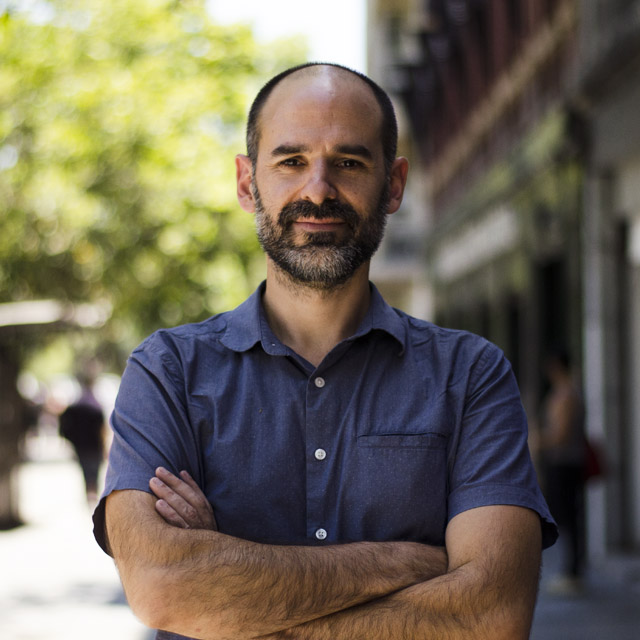Chairholder 2023 – 2025: Dr Sebastián Ureta

Dr Sebastián Ureta appointed to Prince Claus Chair
As of 1 September 2023, Dr Sebastián Ureta will formally start the Prince Claus Chair at ISS in Technology and Citizen Science: Connecting Local Environments with Climate Change.
In many locations throughout the Global South, independent and reliable information on the socio-environmental impacts of potentially polluting activities is often lacking, especially at the community level. In recent years, different collectives have looked to redress this situation by developing citizen science initiatives focused on designing and testing low-cost environmental assessment methods and technologies. Not unfrequently these initiatives have achieved an important degree of sophistication, but they also face multiple barriers in moving beyond the singular projects and/or locations in which they were first deployed, greatly diminishing their overall capacity to impact the ongoing global ecological crisis. The 2023–2025 Prince Claus Chair will focus on exploring, analysing, and disrupting the barriers facing the mobilization of citizen technoscience for the participative assessment and/or remediation of environmental degradation in the global south. These questions will be explored through a mixture of ethnographic and action-research methods, aiming at producing high-impact publications and public outreach initiatives.
Professor Sebastián Ureta is currently an associate professor at Pontificia Universidad Católica de Chile, with joint appointments at College UC and Instituto para el Desarrollo Sustentable. His central area of interest is the analysis of policies, practices and conflicts associated with the governance of environmental degradation and restoration in Chile. He is currently developing research projects on productive transitions in marine environments (especially in relation to seaweed) and on the regulation of soil contamination. His preferred analytical framework is science and technology studies (STS) and the environmental humanities and uses qualitative social research and action-research methods. He holds a PhD from the London School of Economics and Political Science. Professor Ureta’s academic work, including a wide variety of publications, is internationally renowned.
Dr Mandy Geise is a postdoctoral researcher at the International Institute of Social Studies. She gained her PhD from the École des Hautes Études en Sciences Sociales in Paris. As an anthropologist of health and the environment, Dr Geise works on social aspects of environmental degradation, health, care, technology and citizen initiatives. She combines her research interests with the pursuit of ethnographic and collaborative approaches to encourage policies and practices informed by people’s lived experiences and embodied inequalities. Having long combined research and action, Dr Geise’s work attends to the challenges in translating between research, practice and policy, and the tensions between different knowledges in health and environmental research and policy making. She also contributes to the development of research methodologies and of training in social science methods for non-social scientists, including policy makers and health professionals.
An understanding of care in a broad sense, including how humans relate and tend to their environment, centers her work. Her current focus is on exploring the circumstances and ways in which community actors use and (re)shape technologies to measure and address local manifestations of the socioecological crisis, with the aim to stimulate just, participatory and collaborative environmental governance. You can contact her at geise@iss.nl and find her on LinkedIn Profile page Dr Geise
This section will be updated.
About Dr Ureta’s research
As holder of the Prince Claus Chair, Sebastián Ureta’s goal is to open the public discussion about a critical aspect of citizen science that is seldom discussed: the massive difficulties that projects focused on developing low-cost environmental assessment technologies face in moving beyond successful prototypes, especially in the global south.